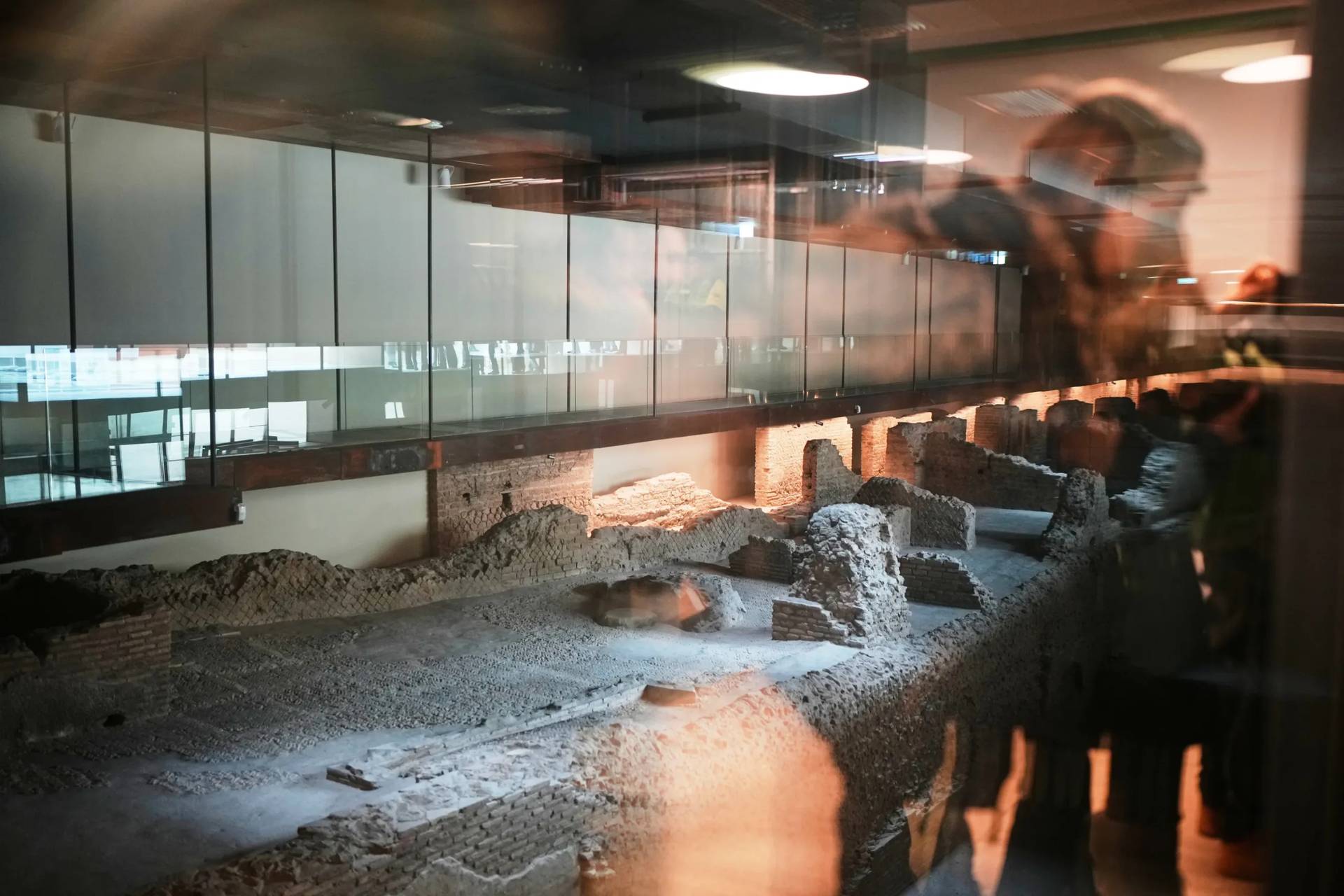RZESZÓW, Poland – On March 9, 2022, Valentina Polischak fled Huliaipole, Ukraine.
It was four days after Russian soldiers had invaded her small town in the southern part of the country, about 90 miles northwest of Mariupol, and “shot all of the cars and homes,” leaving it without running water or electricity.
Polischak arrived in Poland on April 29, 2022 without an idea of when she might return.
Through a translator, Polischak, 67, told her story to a group of journalists on August 31 at the Aid, Activation and Integration Center for Ukrainian Refugees run by the Diocese of Rzeszòw Caritas, where she now assists with providing humanitarian aid, as she continues to live and integrate into Polish society.
Of the more than 1 million Ukrainian refugees in Poland, many have been there for more than a year. This reality, and the fact that there are far fewer Ukrainian refugees entering Poland now than at the start of the Russia-Ukraine war, have led Non-Governmental Organizations such as Caritas, in conjunction with local governments, to shift their priorities to help meet the long-term needs of refugees.
“We do not stop providing help. What has changed is people need less one-time assistance,” Malgorzata Sielska, head of the Archdiocese of Przemyśl Caritas Help Center for Migrants and Refugees, told Crux on August 31. “These refugees become a part of the local communities and our task is to help them feel at home, and support them in any possible respect.”
Sielska estimates the organization has helped more than 20,000 refugees since the war began.
Similar to how Catholic Charities operate in the U.S., Caritas responds to needs that are presented before them. At the start of the war, they provided people with food, temporary shelter, clothes, and other essential items. Now, they’ve shifted to meet the long term needs that refugees have – primarily long-term housing, assistance with employment and legal documentation, and psychological support.
The Diocese of Rzeszów Caritas has followed the same sort of trajectory, shifting away from immediate, one-time assistance to long-term assistance, according to Krystian Snopkowski, an official with the organization. They’ve helped over 32,000 Ukrainians over the past year, including about 4,000 at the aid center, and that help now focuses on programs to help refugees understand and integrate into Polish culture, Polish language classes, a daycare center for children, as well as long-term housing, employment, and counseling, he said.
The goal, Snopkowski added, is to “ensure [the refugees have] a feeling of security.” Both Caritas organizations house ten people in long-term housing facilities.
Przemyśl and Rzeszów are a part of the Podkarpackie Region that encompasses southeastern Poland, which has been on the front lines of aiding Ukrainian refugees since the war began in February 2022. It’s one of two regions bordering Ukraine designated as a “reception voivodeship” by the federal government, tasked with receiving refugees to provide them humanitarian assistance and help them relocate to other regions where long-term shelters were prepared.
From the start, NGOs, such as Caritas, and the local government, have coordinated their efforts.
When the war began there were six reception points at the border, where assistance was provided including accommodations, rest, food, medical, and psychological care, along with supplies for their journey. Currently, there is one reception point still operating around the clock at the railway station in Przemyśl.
The situation peaked in March of 2022, when there were about 75,000 people crossing into Poland from Ukraine each day, mostly on foot, about four times higher than usual. In total, 5 million people entered the region in 2022. However, the situation more or less stabilized in June 2022.
As of August 21, there are 59,375 Ukrainians who have registered in the province, and about 11,000 have started work. Most of the refugees were women, children, and men over 60, as men between the ages of 18-60 had to stay in Ukraine to fight in the war per a government mandate.
Local governments within the region established a total of 78 long term housing areas, where there are 583 people currently in residence. The region as a whole has spent about $15 million on housing, support for NGOS like Caritas, aid to Ukraine cities, integration programs, and more.
Wladyslaw Ortyl, Marshal of the Subcarpathian Voivodeship, in essence the head of the region, told a group of journalists on a trip sponsored by the Ministry of Foreign Affairs on August 31 that the region is prepared to continue its operation over the long term, and that it doesn’t foresee funds becoming an issue.
“I cannot see at this moment any danger that we run out of funds,” Ortyl said. “There is no big problem, but it’s a never-ending story and we’re looking forward to when the war is over.”
Commenting on funding from the perspective of the Archdiocese of Przemyśl Caritas, Sielska offered a reminder to the international community that “the support is still very much needed.”
Seated next to Polichak while she told her story was the Diocese of Rzeszów Caritas humanitarian aid center was Valentina Maievska, who is also a Ukrainian refugee now in Poland. When Polichak finished, Maievska, 65, told her story of fleeing her home in Mariupol when Russia invaded early last year.
Maievska recounted being in the city – now occupied by Russia – when the attacks began. For 10 days she huddled with others in a basement for shelter. The city had no electricity, or water. Ukrainian officials estimate that at least 25,000 people were killed in Mariupol, but Maievska said she escaped through a humanitarian corridor set up by United Nations workers.
Since last March, Maievska said has lived in a flat for free as a refugee. She thanked the Polish people for all they have done to help, but said she “very much wants to go back.”
The same holds true for Polichak. While she is grateful for the help of the Polish people, and has begun to integrate into Polish society, the hope is to one day go back home.
“I really hope that I will go back one day,” Polischak said. “That’s my native city. My native village. My native earth.”
Follow John Lavenburg on Twitter: @johnlavenburg














